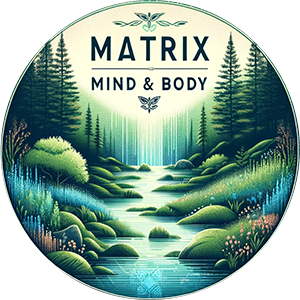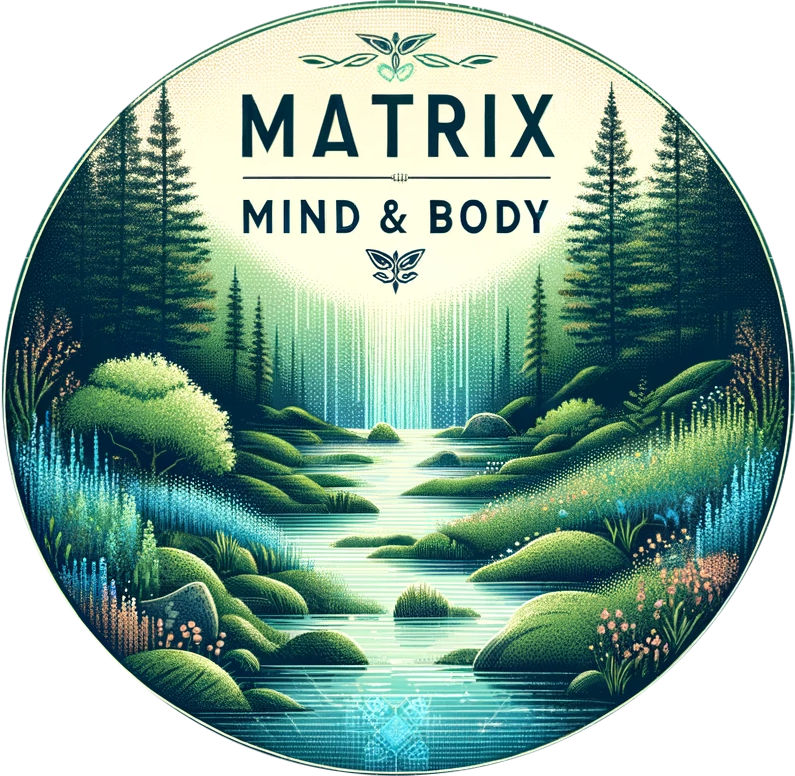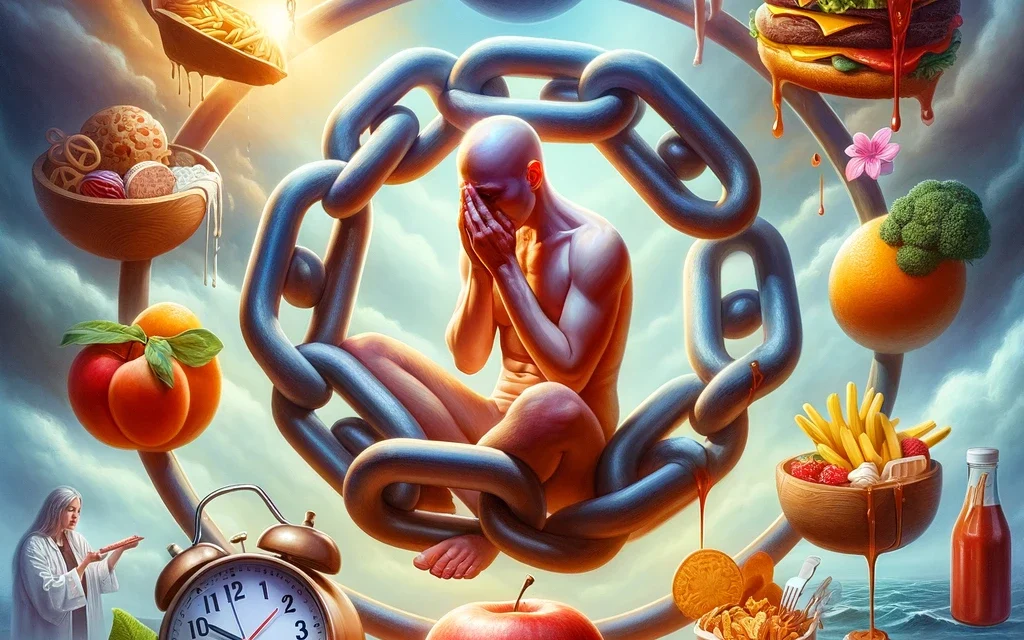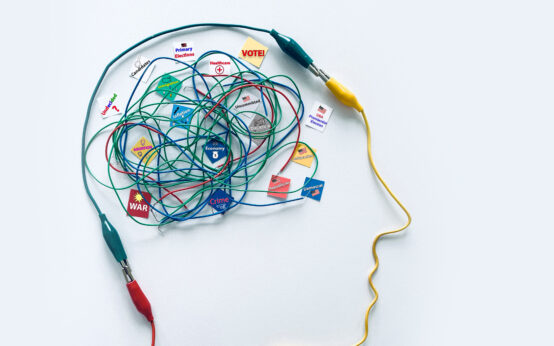In the intricate dance of hormones and emotions within our bodies, cortisol plays a leading role, often pulling the strings in ways we might not anticipate. This hormone, known for its pivotal role in stress responses, also casts a long shadow over the process of fat storage. Unbeknownst to many, the emotional turmoil of guilt, especially following indulgence in less-than-ideal dietary choices, can trigger a cascade that not only affects our mental state but our physical form as well.
Cortisol: The Stress Hormone’s Role in Fat Storage
Cortisol is commonly dubbed the “stress hormone” because it gears the body up to tackle immediate threats or stressors. However, its job description extends far beyond mere stress management. When cortisol levels rise, they adjust the body’s energy allocation, favoring quick access to stored glucose and increasing appetite. This mechanism, while beneficial in the short term, can lead to increased fat storage if the stress (or cortisol spike) is prolonged.
Particularly insidious is cortisol’s preference for depositing fat in the abdominal region, which is linked to a myriad of health issues like heart disease and diabetes. Moreover, cortisol can interfere with other hormones, including insulin, exacerbating issues like insulin resistance and further promoting fat storage.
The Guilt-Cortisol-Fat Storage Loop
Now, let’s delve into how guilt fits into this equation. Feeling guilty after eating, particularly foods considered unhealthy or indulgent, triggers stress responses in the body. This emotional stress signals the brain to release cortisol, entering a feedback loop where guilt perpetuates stress, which in turn signals for more cortisol release.
This physiological response to emotional stress means that the very act of feeling bad about one’s dietary choices can indirectly lead to increased fat storage. The body, in its wisdom, doesn’t distinguish between the stress from a predator and the stress from self-reproach; its response is the same—cortisol release and its subsequent effects, including increased appetite and fat storage.
Breaking the Loop
Recognizing this loop is the first step in breaking free from it. Understanding that guilt can physiologically contribute to the opposite of what you might want for your body is empowering. Here are strategies to dismantle this vicious cycle:
- Mindful Eating: Approach food with mindfulness, enjoying what you eat without attaching guilt. This practice helps reduce stress levels and the likelihood of overeating or choosing unhealthy foods as a form of emotional compensation.
- Stress Management: Since cortisol is closely tied to stress, finding effective ways to manage stress is crucial. Techniques like deep breathing, yoga, meditation, and engaging in hobbies can mitigate stress responses and, consequently, cortisol’s impact on fat storage.
- Self-Compassion: Cultivate a kinder, more compassionate attitude towards yourself, especially in moments of dietary lapse. Recognize that perfection is unattainable and that occasional indulgences are part of a balanced life.
- Physical Activity: Regular exercise not only helps in managing weight but also in reducing stress levels, which can decrease the frequency and intensity of cortisol spikes.
- Sleep Well: Adequate and quality sleep is essential in regulating cortisol levels. Ensure you’re getting enough restful sleep to support your body’s hormonal balance.
The Final Takeaway
The intricate interplay between guilt, cortisol release, and the subsequent storage of fat in our bodies serves as a fascinating illustration of the deep connection between our emotional states and physical health. This relationship underscores the importance of addressing both psychological and physiological aspects when striving for overall well-being. The science behind this connection reveals a complex biochemical process influenced by our emotional responses, particularly the feeling of guilt associated with eating habits or specific food choices. When we experience guilt, our bodies react by releasing cortisol, a hormone that, while essential for managing stress, can lead to increased fat storage, especially when this response is triggered frequently over time.
Understanding the mechanisms of this cycle offers us a pathway to disrupt it and move towards a healthier equilibrium. By recognizing the triggers of emotional eating and the physiological responses they elicit, individuals can develop strategies to manage stress more effectively, make more mindful food choices, and cultivate a kinder, more compassionate attitude towards themselves and their eating habits. This knowledge empowers us to take actionable steps towards breaking the cycle, such as incorporating stress-reduction techniques like meditation, exercise, and adequate sleep into our daily routines. These practices not only help in managing cortisol levels but also improve our overall mental health, contributing to a more balanced and harmonious state of being.
The pursuit of balance rather than perfection is a critical mindset shift in this journey. It encourages a more flexible and forgiving approach to diet and emotional well-being, recognizing that occasional indulgences and setbacks are part of the human experience. Embracing this perspective can lead to significant improvements in physical health, including a more regulated appetite, reduced cravings for unhealthy foods, and a decrease in stress-induced fat storage. Moreover, it fosters a more peaceful and forgiving inner landscape, where food is seen as a source of nourishment and pleasure rather than a cause for guilt and stress.
In essence, the relationship between guilt, cortisol, and fat storage not only highlights the complex ways in which our emotions can influence our physical health but also offers a blueprint for creating a more harmonious relationship with food and our bodies. By delving into the science of this connection and implementing strategies to mitigate its impact, we can achieve a state of balance that benefits both our physical and emotional well-being. This holistic approach to health emphasizes the interconnectedness of mind and body, steering us towards a lifestyle that promotes both physical vitality and emotional resilience.




 Better Than Benzodiazepines? Discover the Song Scientifically Proven to Reduce Anxiety Without Drugs!
Better Than Benzodiazepines? Discover the Song Scientifically Proven to Reduce Anxiety Without Drugs!  Boosting Brain Power: Enhancing the Striatum for Improved Movement, Decision-Making, and Habit Formation
Boosting Brain Power: Enhancing the Striatum for Improved Movement, Decision-Making, and Habit Formation  The Two-Step Fat Loss Process: Unlocking Energy Through Shivering and Fidgeting
The Two-Step Fat Loss Process: Unlocking Energy Through Shivering and Fidgeting  Painting Your Environment: The Transformative Power of Color
Painting Your Environment: The Transformative Power of Color 